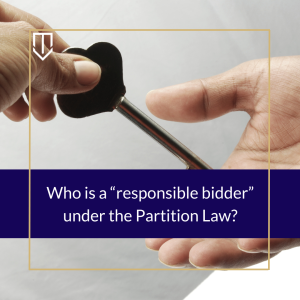 Under the Partition Law, “[a] bidder is responsible if it can perform the contract as promised.” (PCC § 20162; Valley Crest Landscape, Inc. v. City Council (1996) 41 Cal.App.4th 1432, 1438.) That means, in essence, that it can be determined from the face of the bid itself that it will be viable, without outside investigation or information. (Taylor Bus Service, Inc. v. San Diego Bd. Of Education (1987) 195 Cal.App.3d 1331, 1342.)
Under the Partition Law, “[a] bidder is responsible if it can perform the contract as promised.” (PCC § 20162; Valley Crest Landscape, Inc. v. City Council (1996) 41 Cal.App.4th 1432, 1438.) That means, in essence, that it can be determined from the face of the bid itself that it will be viable, without outside investigation or information. (Taylor Bus Service, Inc. v. San Diego Bd. Of Education (1987) 195 Cal.App.3d 1331, 1342.)
The concept of the “responsible bidder” comes up at the end of partition cases when the court is deciding whether the confirm or vacate the partition sale. Essentially, the law provides that if a “responsible bidder” makes a viable bid above the sales price, then the court may vacate the sale and either sell the property to the bidder, or start a new round of marketing the property.
For parties who were looking forward to a sale, this can be devastating news if the court chooses to send the house back to the market. As such, having the right attorney by your side can make all the difference. At Underwood Law Firm, our attorneys are well versed enough in the practice and procedure of partition actions to help you get the answers and relief you need
 California Partition Law Blog
California Partition Law Blog


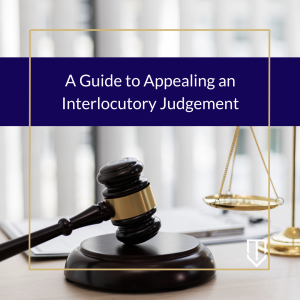 Does the appeal of an interlocutory judgment automatically stay the partition case?
Does the appeal of an interlocutory judgment automatically stay the partition case?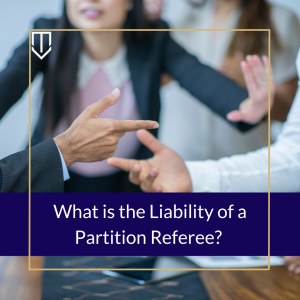 Generally, when a trial court orders an interlocutory judgment directing a partition by sale, it can appoint a referee to conduct the sale (CCP § 873.010). However, when a
Generally, when a trial court orders an interlocutory judgment directing a partition by sale, it can appoint a referee to conduct the sale (CCP § 873.010). However, when a 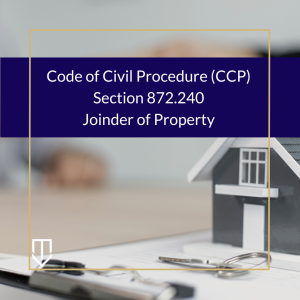 The California Partition Law begins at
The California Partition Law begins at 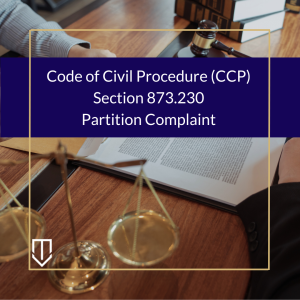 The California Partition Law begins at Code of Civil Procedure section 872.010 and ends at Code of Civil Procedure section 874.323. Section 872.230 outlines the necessary information a plaintiff must have in their complaint. The point of the statute is for plaintiffs to file a proper complaint with all of the content required to initiate a partition lawsuit. If the party files an improper complaint, the court could dismiss the case at the outset.
The California Partition Law begins at Code of Civil Procedure section 872.010 and ends at Code of Civil Procedure section 874.323. Section 872.230 outlines the necessary information a plaintiff must have in their complaint. The point of the statute is for plaintiffs to file a proper complaint with all of the content required to initiate a partition lawsuit. If the party files an improper complaint, the court could dismiss the case at the outset.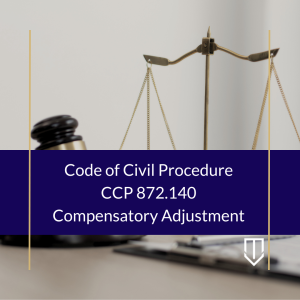 The
The  Generally, married couples who buy homes in California are afforded certain rights and protections under California law. These rights and protections do not necessarily apply to unmarried couples who own property as tenants-in-common. Unmarried couples can still take further steps to protect their property rights.
Generally, married couples who buy homes in California are afforded certain rights and protections under California law. These rights and protections do not necessarily apply to unmarried couples who own property as tenants-in-common. Unmarried couples can still take further steps to protect their property rights.